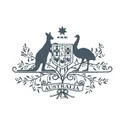
Radio Interview – FiveAA Breakfast
HOST: We are joined now by the Prime Minister of Australia, Anthony Albanese, who joins us on day one of the Undie Drive to raise funds for Catherine House and the Hutt St Centre. Prime Minister, good morning. Thank you so much for your time.
ANTHONY ALBANESE, PRIME MINISTER: Good morning. To be clear, that wasn’t the motivation for joining you this morning. But it is a good cause. And good on you.
HOST: It is a very important cause, PM. And one of the things that’s driving it at the moment, because this is about the seventh year that we’ve been doing this, raising money to buy clothes for people who are living on the streets, we’ve been talking to both the Hutt St Centre and Catherine House and at a time when the cost of rent, the cost of servicing a mortgage, the cost of paying power bills, has all increased so markedly, it’s actually becoming a really significant driver of a spike in homelessness. Now, you’ve been in politics for a good three decades. And you remember the recession we had to have in ‘89 and so on. But as the nation’s leader, do you worry that we’re seeing a permanent shift in terms of how expensive living in Australia is becoming?
PRIME MINISTER: Well, I certainly worry about the cost of living. Because the feedback that we have just going right around the country, we know that families are under pressure. We know that inflation is a global issue. And there was concern earlier on about a global recession. Now, the US economy is looking better. And we did have some relatively good figures last week of inflation increasing by 0.8 per cent over the June quarter, much less than when it peaked at 2.1 for the March 2022 quarter before we came into office. So, that was a good sign that inflation was moderating. But we want to see it moderate even quicker. We know the price pressures here and around the world are having an impact on people.
HOST: So, that 0.8 per cent figure, if you annualise it, it’s 3.2 which is almost a return to the target band. Is it your assessment that there’s still some hard yards ahead when it comes to fighting inflation? Or can households expect now that things will ease a little bit?
PRIME MINISTER: The advice that we have from Treasury and from the Reserve Bank is that we still have work to do and we need to be vigilant. And that’s why our plan of, one, making sure that we bank the surplus that we’ve been able to produce, the first one in 15 years, in order to take pressure off inflation, is the right thing to do. The second is targeted cost of living measures that don’t put pressure on inflation. And that’s why we’ve targeted areas like cheaper child care, cheaper medicines to make a difference as well. And the third is issues related to supply chain issues and pressures. So, fee-free TAFE is making a big difference here as well. So, something that is making TAFE cheaper for people, but providing the skills that we need, that’s also putting pressure on inflation. So, it’s a three-part plan that we have. But we know that these things aren’t solved permanently. We have to work on it day after day, week after week, month after month.
HOST: Is housing, the supply side component of that, your $10 billion housing policy, so fundamental to rectifying the cost of living equation in Australia, that you would take Australians to an early poll and trigger double dissolution?
PRIME MINISTER: Well, housing supply is the issue. And everyone knows that’s the case. And here we have a policy that’s supported by the Master Builders Association and the Housing Industry Association and Shelter, community housing organisations, ACOSS. Everyone’s saying get this done. It’s good policy. And the Coalition, of course, are saying no. They don’t like public housing, never have really. But for the Greens who are saying, ‘Oh, it’s not enough so we’ll give you a zero’, is just absurd and really self-indulgent. It is one of the most self-indulgent things I’ve seen the Greens political party do, and I’ve seen a few. But this is really out there. And they even put in writing, ‘Oh, well, if we just wave this through, we won’t be able to campaign on it’. Well, surely the responsibility of Senators is to produce good outcomes.
HOST: You’ve seen some crazy councils up close and personally in the Inner West of Sydney, PM.
PRIME MINISTER: I have indeed. Opposing housing everywhere, including, there’s one area in Marrickville there that’s just won a fantastic award. It was a Mirvac development that, together with the council, a majority of the council, has provided for a library that the whole public can use, a bit of open space, good quality, medium-density housing. And that’s the sort of thing that we need, not development willy-nilly, but we do need good development.
HOST: Is part of the problem then at the local government level? Because we see here in South Australia too, you get a lot of the sort of Green-style or Green-aligned or out and proud Green councillors who, on the one hand, they don’t like urban sprawl, they complain about greenfields developments. They also complain, you know, I’ve got remember people of Leichhardt are against medium-density housing, all that sort of stuff that proliferates about urban backfill in the Inner West. There doesn’t seem to be any type of housing that they like in a practical sense.
PRIME MINISTER: No, that’s exactly right, except their own. And the truth is that you do need appropriate development, particularly along public transport corridors. I had a group come to see me a few years ago about a development right on the railway station at Marrickville. It doesn’t need as many car parking spots because people don’t need a car if you live there. There’s good public transport. The alternative is you build on the outskirts of Sydney. And it made absolute sense. And that project is up and running, the old Marrickville RSL site. It’s about 1,500 people living there right next to the station. That’s the sort of thing that we need. Good quality housing along public transport corridors, proper density, proper planning. And that’s one of the things that we’re working with state and territory governments on. But it’s true that sometimes local government can get in the way because people want to oppose anything at all that looks like development. And the truth is we do need to increase housing supply. That’s the key.
HOST: Absolutely. And then, PM, there’s a bit of a battle emerging between you guys and Peter Dutton’s Coalition over JobSeeker. Labor has embraced and supported this $40 a fortnight increase to the JobSeeker rate. The Libs are going to announce today that they’re going to oppose that, but also support a plan to let people on JobSeeker earn up to $300 without being booted off the payment. Does that make sense in the middle of a job squeeze? I mean, is there merit in their idea? Or would you just oppose it outright?
PRIME MINISTER: Well, this is a thought bubble from the Coalition. They announced their policy in the Budget Reply some 11 weeks ago before today. Apparently, there’s going to be some semblance of costings finally made for it. But let’s be clear here. The Safety Net bill which is before the Parliament incorporates the increases to JobSeeker, Commonwealth Rental Assistance, pensions, and parenting payment for single parents, as announced in the May Budget. Now, if the Safety Net bill does not pass this sitting, this fortnight, there won’t be an increase in payments be able to be made by September 20. So, this is just madness. They voted against energy relief, $3 billion of it, in December. If they do the same thing here, this will stop people getting an increase. And the problem with their thought bubble is that increasing the income free area will have a number of unintended consequences. It does nothing at all for the almost four in five job seekers who don’t access the income free area that is there at all. The income free area was $300 a fortnight during the pandemic. The Coalition reduced it back to $150 per fortnight. They did that. And one of the reasons why they did it, I suspect, was that the conservative estimate are that with a doubling of the income free area, it will put another 50,000 people would become eligible for JobSeeker overnight, because the thresholds in which they are cut off would increase. And it would appear that they haven’t thought that through and what the cost to the taxpayers of that additional 50,000 people conservatively going onto JobSeeker would be. But the longer term issue as well, is that if you make JobSeeker, together with $300 that you could earn with casual employment, you potentially provide an incentive or don’t have a disincentive, to put it that way, to seek full-time work, and that you end up with consequences for employment and for individuals that are not constructive either. I just don’t think that the Coalition have thought this through. I think they’re thrashing around looking for an issue in which to have product differentiation. But this is a shocker, the one that they have picked.
HOST: We’ll see what happens when Parliament resumes this week. Prime Minister Anthony Albanese, thanks for joining us this morning on FiveAA.
PRIME MINISTER: Thanks very much, guys.


